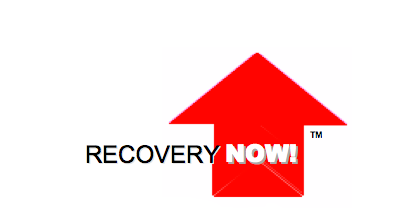Alcoholism Symptoms and a check list of what to look for.
Alcoholism Symptoms and Checklist
Here are the major Alcoholism Symptoms
The following is
a checklist of signs and symptoms to look for when the possibility of
a problem exists:
1. NEEDING To Drink Alcohol: The illness causes a
person to experience a strong craving for alcohol, a compulsive need
to drink. The daily schedule begins to focus on access to alcohol,
and some will develop rituals to accommodate that need. They may
become angry if the ritual is interrupted, or be irritable when they
don’t get that first drink of the day on time.
2. Being OUT of CONTROL: People who
are in the grips of this disease often find they cannot stop drinking
once they start. They may isolate themselves and drink alone, or
sneak a drink when no one is looking. They may hide alcohol in
unusual places to make sure they have access to it. The disease can
cause a person to lose interest in family, friends, hobbies and work.
They may lose track of conversations, or not remember conversations
from the previous day. As the disease progresses they might encounter
legal problems, such as DUI, financial, etc.
3. DEPENDENCE/Withdrawal (see below this is one of the most crucial alcoholism symptoms):
Once addicted, people will suffer withdrawal Alcoholism Symptoms if
they don’t drink. People may get “the shakes,” become anxious,
sweat, get chills, or have nausea.
4. TOLERANCE(Drinking More): More and more
alcohol is needed to get “high” as the disease progresses.
Perhaps they order doubles, or guzzle drinks to get intoxicated. It
takes more to “feel normal” How long this takes, or how much
alcohol is needed depends on the individual. The drink of preference
is not the determining factor.
Questions help us to understand!
This checklist
helps us to understand that alcoholics are suffering from a disease,
and telling them to exercise a little willpower to overcome the
problem is not the solution. They need to drink, the craving, is
powerful and to the alcoholic can be just as “necessary” as
eating and sleeping.
The first step in the Alcoholics Anonymous
12-Step program is admitting that:
“we were powerless over alcohol,
that our lives had become unmanageable.”
Like cancer, or heart
disease, intervention is necessary to help a person through the
recovery process. The first step is important because the person who
has the disease is probably going to be the last person to accept
that fact.
Here are some questions to ask
yourself about your own experience with alcohol and alcoholism symptoms, or what you may be observing
in another person.
- Do you believe it would be good
to drink less? - Do you often take a drink when you wake
in the morning? - Do you feel sometimes feel guilty about
drinking? - Do you get mad if anyone
comments about how much you drink?
A “yes” answer to most of these questions
does not necessarily mean the disease has set in, but does indicate
the potential issue, the issue of alcoholism. If you suspect
there is a problem in your life, we strongly suggest that you to get help from a
professional.
If someone you love, one of your
friends, someone you work with showing any of these
Alcoholism Symptoms, or gives “yes” answers to the information above,
you need to encourage them to seek help.
Understanding Withdrawal Symptoms
Looking forward to that first drink
It’s been a tough day and many people look forward to pouring a
drink, settling down in an easy chair and relaxing. Or as one person
put it, “I have a meeting with ‘Jack’ after work.” Whatever
the ritual, alcohol and relaxation are paired together, as if
relaxation were not possible without alcohol.
There is that temporary feeling that all is well, as the troubles
of the day melt away. However, for those who abuse alcohol or are
alcoholics, the flip side of that relaxing moment is anything but
pleasant. Take away the alcohol and life becomes rather difficult.
Withdrawal Activates the Nervous System
According to Deborah A. Finn, PH.D. and John C. Crabbe, PH.D.,
alcohol withdrawal syndrome is characterized by hyperactivity of the
nervous system.* People use alcohol as a means of relaxation. It is a
central nervous system depressant. Finn and Crabbe explain that the
hyperactivity is triggered by the brain’s attempt to “function
normally despite the inhibitory effect of chronic alcohol
consumption.”
Withdrawal is one of the major alcoholism symptoms; the brain thinks it
NEEDS alcohol
Simply stated, the brain thinks there’s something wrong if
alcohol is not present. The of the calming effects of the alcohol
turn into opposite reactions. The person can become agitated and
anxious, and they crave a drink to feel better. In medical terms, the
alcohol-induced cycle neuronal inhibition and excitation is taking
place.
Once depressed, the central nervous system
becomes over activated. You’ve heard of seeing “pink elephants”
when a person is coming down off of alcohol. This is a visual
disturbance, and audio disturbances are also common. The person might
develop a headache and feel sick, like an extreme hangover. The
severity of these symptoms are dependent on the individual. For those
experiencing withdrawal, there is often the craving for a drink to
rid themselves of the discomfort.
Hangover first signs of withdrawal
A hangover for most people is just a mild form of alcohol
withdrawal. For the chronic drinker, the alcoholic, the symptoms can
be much more severe.
Coming off of alcohol can be uncomfortable, as the hallucinations,
or delirium tremens usually occur between 48 and 72 hours after
taking the last drink. People can become disoriented. Worse yet, some
have experienced heart attacks and grand mal seizures, leading to
death in a small percentage of people.
Alcohol withdrawal is a difficult battle
Alcohol withdrawal, even for people who are
highly motivated, can be a true battle for health and well being. If
a withdrawal is not treated, it could lead to more severe withdrawals
in the future. Therefore, withdrawal and detoxification should have a
medical component, as management of the symptoms is needed.
Withdrawal
Symptoms is the major stumbling block in treatment, because
the alcoholic’s brain is craving the alcohol to get back to
“normal.” It is possible to go through detoxification without the
agony of the withdrawal symptoms, as medical treatment is available.
Patients can go into treatment without having to suffer the extreme
discomfort, or worry about the life-threatening consequences.
Medicines to assist in this process have helped restore normal brain
function, and allow people to move to the next step in the treatment
process. By easing the detoxification and withdrawal process, the
chances for success in treatment are greatly enhanced.
We are body, mind and spirit. The medical has made great
strides in treating the body and mind, making successful treatment
and recovery more probability than possibility. There is always the
possibility, however, of relapse. The spirit needs treatment in
recovery. The elimination of pain and discomfort is huge in freeing
the spirit.
*For the entire article by Finn and Crabbe, go to
http://pubs.niaaa.nih.gov/publications/arh21-2/149.pdf
Try to catch Alcoholism early; look for alcoholism symptoms!
Like any other disease, if Alcoholism Symptoms are caught early, the long-term chances for
recovery are improved. Catch the problem before it causes serious
health problems, broken marriages, destroyed relationships, legal
entanglements, and even death. For the person suffering from the effects of the
disease, it’s very difficult to be objective about what is really
happening to them. Intervention is important, never give in to it but also never give up.
If you are watching alcohol harm
someone you know, do not be afraid to be the “bad guy.”
Intervene, seek help, and speak up. You may just save a life.
Visit our home page for more information about Alcoholism Symptoms or return to the About Alcoholism section on this site.
Don’t miss our section on Alcoholism!
We view alcoholism as the most common drug addiction people struggle with. Don’t miss our special section on Alcoholism:

Are you or a family member struggling?
Do you need help RIGHT NOW?
Available 24/7 for HELP!

and Finally Remember:
“Ask and it will be given to you; seek and you will find; knock and the door will be opened to you. For everyone who asks receives; he who seeks finds; and to him who knocks, the door will be opened.”
– Matthew 7:7-8
Today’s Show
Dan, Ned and Debbie continue their discussion of the 12 steps reviewing what it takes to get everything out of this important treatment progam, this week on Recovery Now!
Search Drug-Addiction-Support.org Here!
Haven’t found the information on drug and alcohol addiction that you were looking for? Please enter your search term below and search this site.
/**/
Follow on Twitter or Google+


